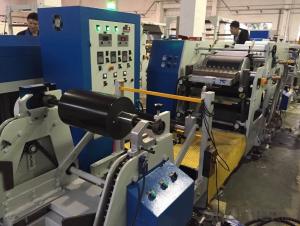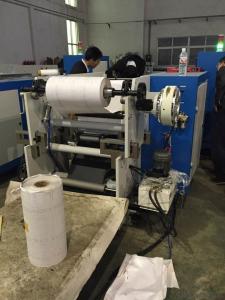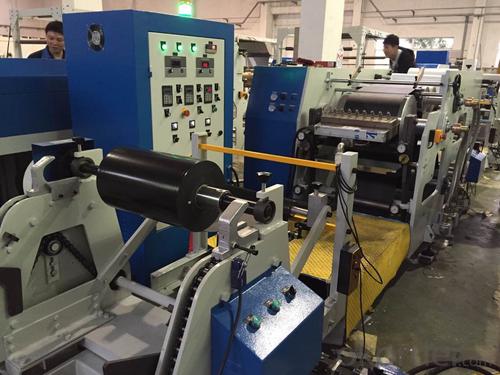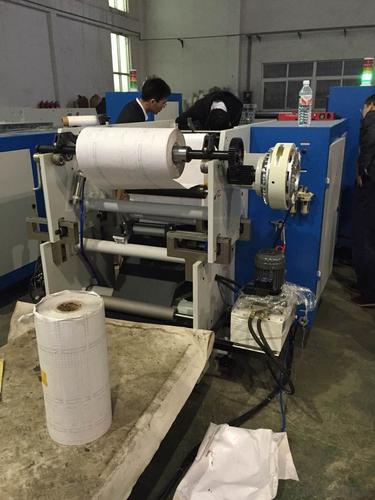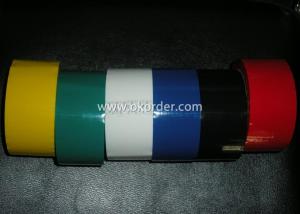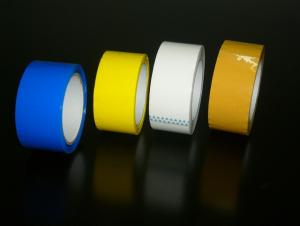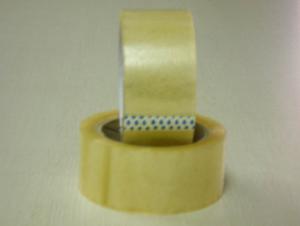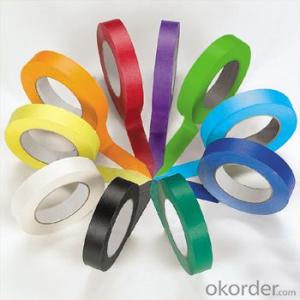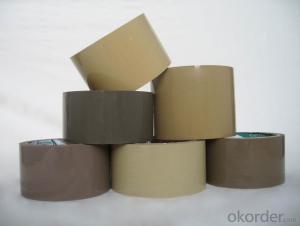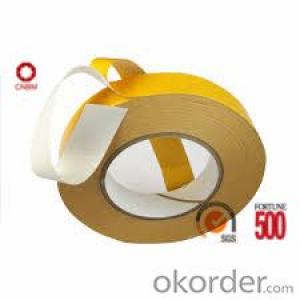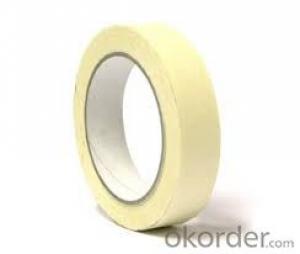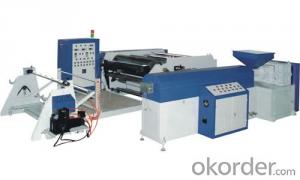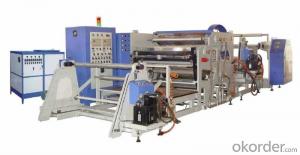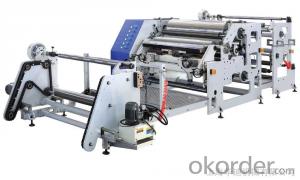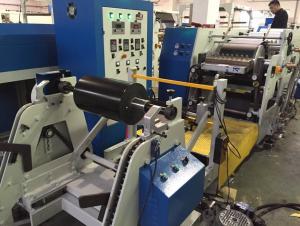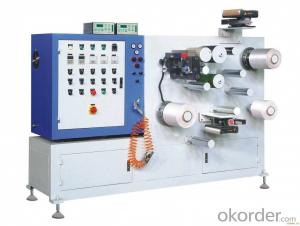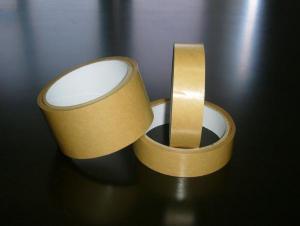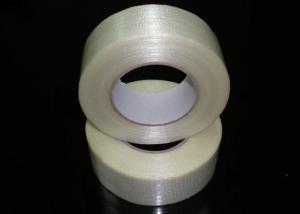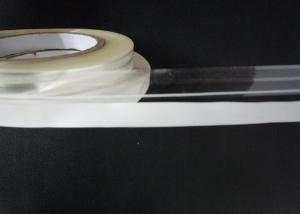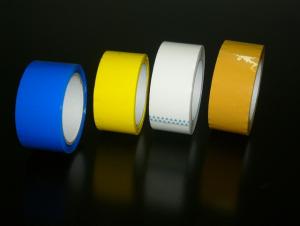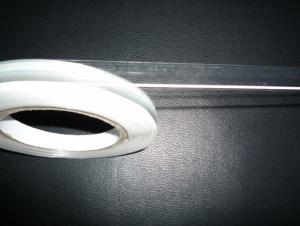Packaging Tape Costco Hot Melt Coating Machine with Electronic Precision Controller
- Loading Port:
- China main port
- Payment Terms:
- TT OR LC
- Min Order Qty:
- 1 unit
- Supply Capability:
- 20 unit/month
OKorder Service Pledge
OKorder Financial Service
You Might Also Like
Hot Melt Coating Machine with Electronic Precision Controller
RT-Series Coating Machine is suitable for producing double sided tape, cloth tape, double-sided foam tape, cleaning tape, kraft paper tape, masking tape, foil tape, medical accessories tape, fiber tape, conductive cloth, self-adhesive trademark, shoes and so on.
Hot Melt Coating Machine with Electronic Precision Controller
Coating Mode: Slot die
Coating Width: 400mm -2500mm
Coating Weight: 18-200g/m2
Uniformity: 20g-45g/sqm <+2g
Max. Machine Speed: 120 m/min
Roller Length: 1200mm
Max Rewinding Diameter: 800mm
Max Unwinding Diameter: 1200mm / 1000mm
Unwinding device: 2 sets
Rewinding device: 1 or 2 sets
Hole Pipe: 3m
Temperature: 210DC
Installed Power: 33kw
Power: ~ 380V + 15% 50HZ
Hot Melt Coating Machine with Electronic Precision Controller
Machine parts are packed in steamed solid cartons separately. Cartons are placed on containers flatwise and fixedly without any possible movement or shaking during sea shipping.
Hot Melt Coating Machine with Electronic Precision Controller
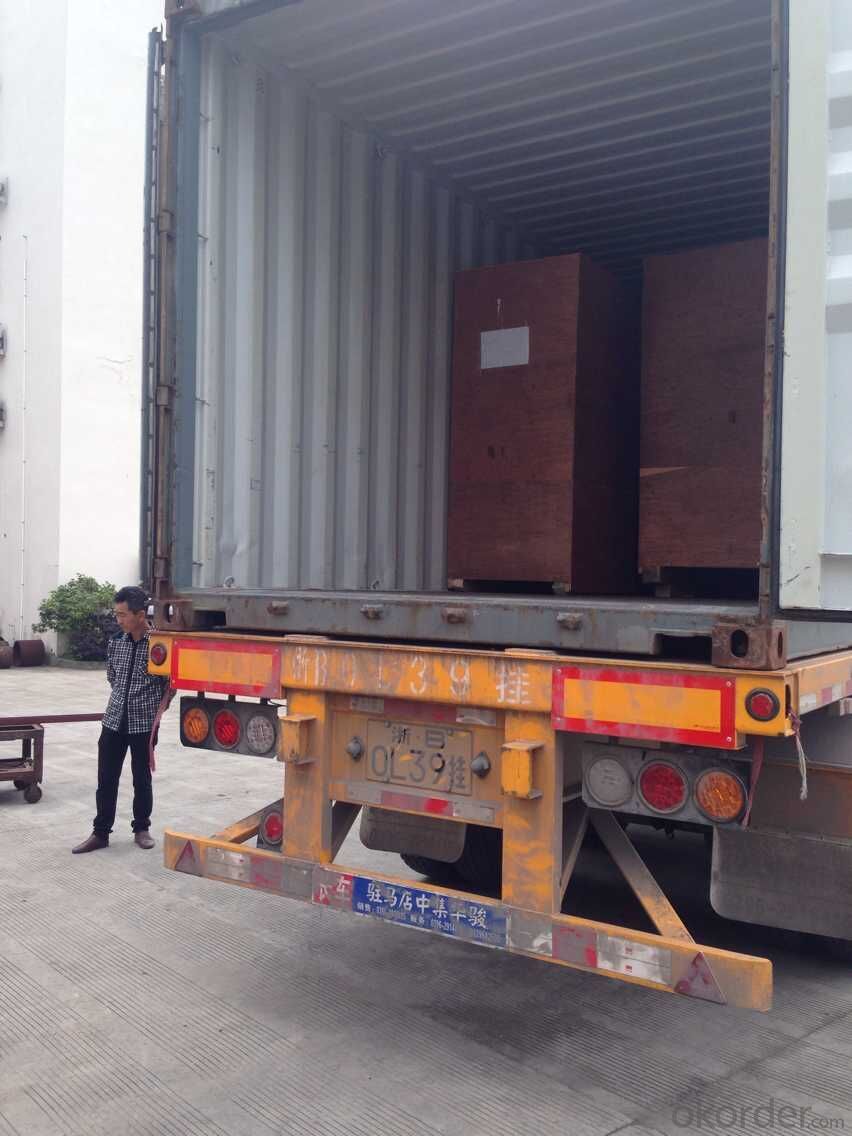
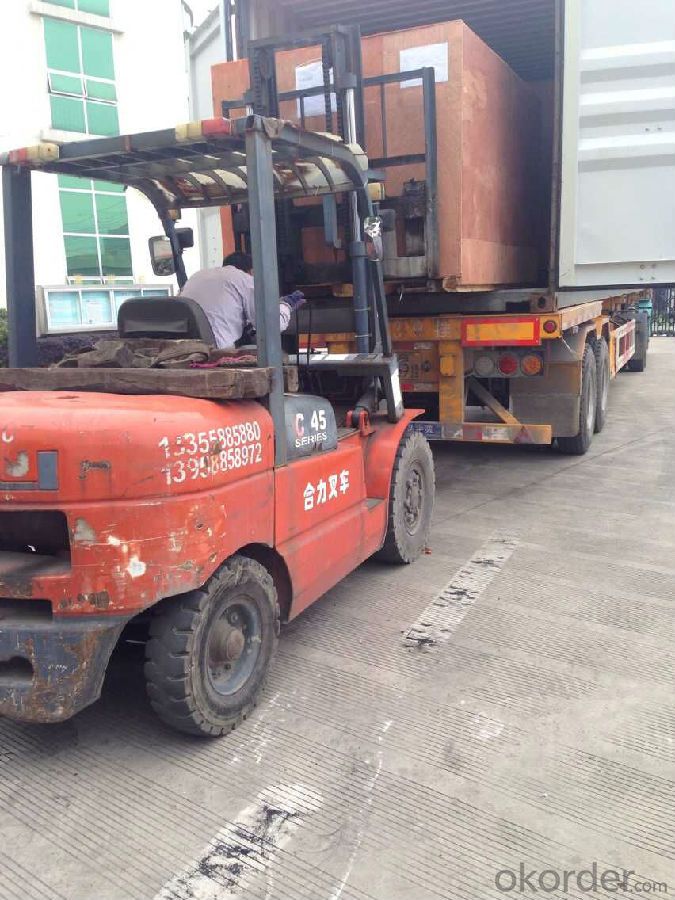
FAQ: What are your company advantages?
Company Advantages:
1. Stable financial status and sound reputation as a state invested corporation under the direct administration of the State Council of PRC;
2. CNBM’s worldwide influence as one of the 500 global fortunes specializing in building materials including adhesive tapes;
3. More than a decade’s exporting experience and technology in adhesive tape industry;
4. Preferential shipping channels, with a separate team dealing with shipping.
- Q: Is packaging tape resistant to extreme pressure or weight?
- The purpose of packaging tape is to secure packages with a strong and reliable seal. However, the ability of the tape to withstand extreme pressure or weight can differ depending on its type and quality. Typically, packaging tapes are crafted from resilient materials such as polypropylene or polyester, enabling them to endure typical handling and transportation pressures. Nevertheless, it should be noted that packaging tape might not withstand excessively heavy loads or excessive pressure. In such instances, it is suggested to enhance the tape's strength by adding extra layers or employing heavy-duty tapes that are explicitly designed for high-pressure or weight-bearing purposes.
- Q: Can packaging tape be used for bundling items together?
- Yes, packaging tape can definitely be used for bundling items together. It is commonly used to secure and hold multiple items together, especially when shipping or moving. Packaging tape is designed to be strong and reliable, providing a secure hold that keeps items bundled tightly. It is often used to bundle boxes, packages, or other items that need to be kept together during transportation or storage.
- Q: Can packaging tape be used for sealing glass bottles?
- Yes, packaging tape can be used for sealing glass bottles. However, it is important to note that it may not provide the same level of security and protection as specialized bottle sealing methods such as corking or using bottle caps. Packaging tape may not be as effective in preventing leakage or maintaining the freshness of the contents.
- Q: Can packaging tape be used for sealing plastic document holders?
- Yes, packaging tape can be used for sealing plastic document holders. Packaging tape is designed to provide a strong and secure seal on various surfaces, including plastic. It can effectively hold the plastic document holder closed, preventing any documents or contents from falling out. However, it is important to ensure that the tape is applied evenly and tightly to ensure a proper seal. Additionally, it is recommended to use clear packaging tape to avoid obstructing the view of the documents inside the holder.
- Q: Is packaging tape safe for use on children's toys or products?
- Packaging tape is not recommended for direct use on children's toys or products. While packaging tape is commonly used for sealing and securing packages, it is not designed or tested for contact with children's skin or for use on items that may come into direct contact with their mouths or eyes. Children's toys and products are subject to specific safety regulations and guidelines to ensure they are safe for use and do not pose any harm to children. It is important to follow the manufacturer's instructions and use appropriate materials that are specifically designed for children's toys and products, such as non-toxic adhesives or child-safe tapes, to ensure the safety of children.
- Q: Can packaging tape be used for sealing household or kitchen items?
- Certainly! Packaging tape is indeed suitable for sealing household or kitchen items. With its versatility as an adhesive tape, it is widely employed for sealing cardboard boxes. However, it can also serve the purpose of sealing numerous items found in the household or kitchen. Whether you require sealing food containers, plastic bags, or even small appliances, packaging tape guarantees a robust and reliable seal. To optimize its adhesive strength, it is crucial to ensure that the surface is both clean and dry prior to applying the tape.
- Q: Does packaging tape have a specific adhesive strength?
- Yes, packaging tape typically has a specific adhesive strength which is designed to securely seal boxes and packages. The adhesive strength can vary depending on the brand and type of packaging tape being used.
- Q: Transparent sealing tape 48mm*60y what do you mean?
- 48mm is tape width. 60Y is tape length, Y means yards, yards 0.914 meters.
- Q: Can packaging tape be used for sealing sports equipment or gear?
- Yes, packaging tape can be used for sealing sports equipment or gear. Packaging tape is designed to have strong adhesive properties, making it ideal for securing and sealing various items, including sports equipment. It can help keep equipment and gear securely fastened, preventing them from coming apart or getting damaged during transportation or storage. However, it's important to consider the specific needs and requirements of the sports equipment or gear being sealed, as some items may require more specialized tapes or sealing methods for optimal protection.
- Q: What are the benefits of using low-noise packaging tape?
- Low-noise packaging tape offers several advantages. Firstly, it is designed to minimize or eliminate the loud noise that traditional packaging tapes often produce when unwound or dispensed. This is especially beneficial in office or retail environments where a quiet and peaceful atmosphere is desired. By reducing noise levels, low-noise packaging tape creates a more comfortable and less disruptive work environment. Secondly, low-noise packaging tape is typically made from high-quality materials that provide superior strength and adhesion. As a result, it ensures a reliable and secure seal on packages, reducing the risk of damage or loss during transit. The strong adhesive properties of low-noise packaging tape ensure it remains in place even in challenging conditions, such as extreme temperatures or high humidity. Another advantage of low-noise packaging tape is its user-friendly nature. It is designed for easy dispensing from a tape dispenser, enabling quick and efficient application. This saves time and effort for users, particularly in high-volume packaging operations or busy shipping departments. The smooth and consistent unwinding of low-noise packaging tape further enhances its ease of use, preventing tangles or snags that can lead to frustration and wasted tape. Furthermore, low-noise packaging tape is often available in various sizes, widths, and colors, allowing for customization based on specific packaging needs. This versatility ensures it can be utilized for a wide range of applications, from sealing small envelopes or boxes to securing larger packages for shipping. The different color options also aid in organization and identification, making it easier to differentiate between different types of packages or mark fragile items. Overall, the benefits of low-noise packaging tape include noise reduction, reliable seals, ease of use, and customization options. By selecting low-noise packaging tape, businesses can enhance the overall packaging experience for both employees and customers, leading to increased productivity, customer satisfaction, and the protection of valuable goods.
Send your message to us
Packaging Tape Costco Hot Melt Coating Machine with Electronic Precision Controller
- Loading Port:
- China main port
- Payment Terms:
- TT OR LC
- Min Order Qty:
- 1 unit
- Supply Capability:
- 20 unit/month
OKorder Service Pledge
OKorder Financial Service
Similar products
Hot products
Hot Searches
Related keywords
